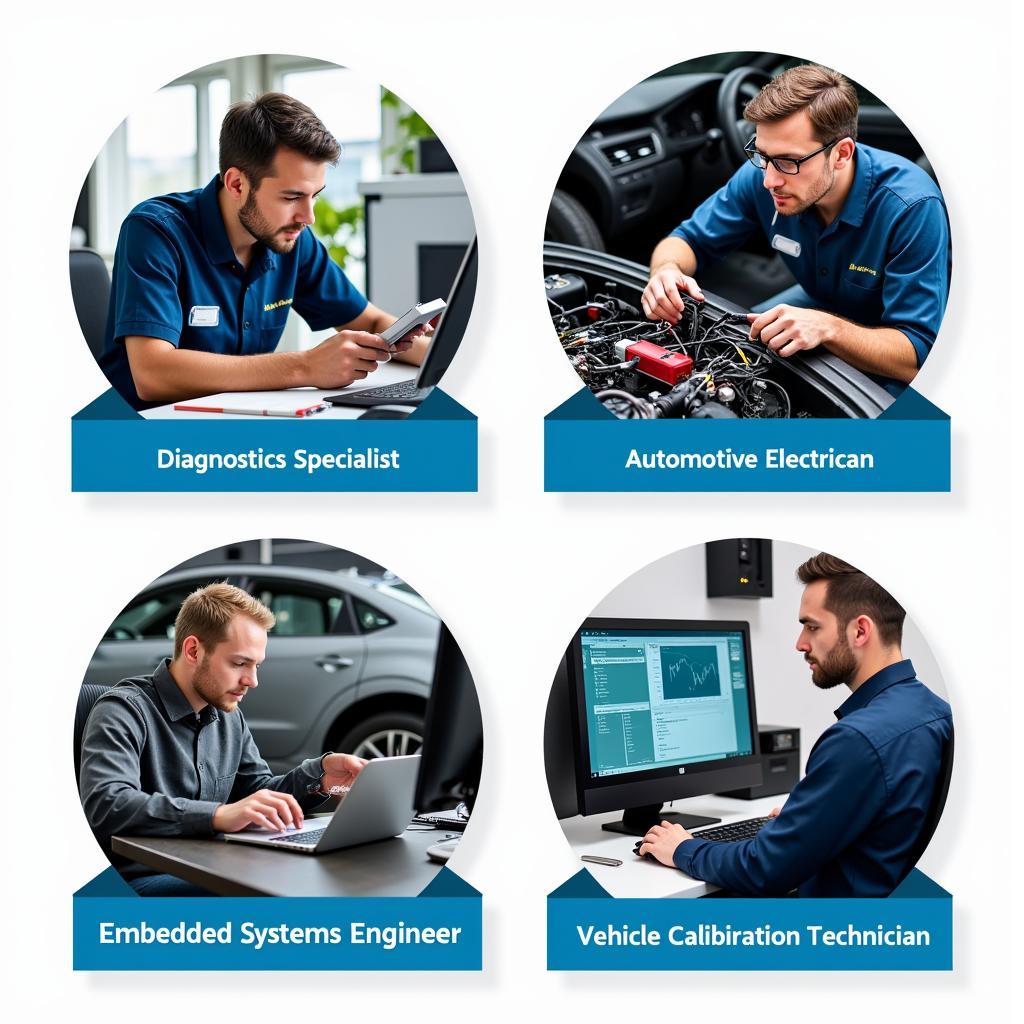Discover the perfect career path in automotive diagnostics with comprehensive career guidance, graduate training curriculum, and essential tool kits. This guide explores the exciting opportunities available and provides valuable resources to jumpstart your career in this dynamic field.
Navigating the Automotive Diagnostics Landscape: Career Guidance for Graduates
The automotive industry is rapidly evolving, with advanced technology becoming increasingly integral to vehicle function. This creates a high demand for skilled automotive diagnostic technicians. Choosing this career path offers numerous opportunities for specialization and advancement. From working in dealerships and independent repair shops to pursuing roles in research and development, the possibilities are vast. Effective career guidance is crucial for navigating these options.
Finding Your Niche: Specialized Career Paths in Automotive Diagnostics
- Diagnostics Specialist: Focuses on identifying and resolving complex vehicle issues using advanced diagnostic equipment.
- Automotive Electrician: Specializes in diagnosing and repairing electrical and electronic systems within vehicles.
- Embedded Systems Engineer: Develops and integrates software and hardware for vehicle control systems, requiring in-depth knowledge of diagnostics.
- Vehicle Calibration Technician: Fine-tunes vehicle systems after repairs or modifications, utilizing diagnostic tools to ensure optimal performance.
Graduate Training Curriculum: Essential Skills for Success
A comprehensive graduate training curriculum is essential for acquiring the necessary skills to excel in automotive diagnostics. This curriculum should cover a range of topics, from fundamental electrical theory to advanced diagnostic techniques.
Core Curriculum Components:
- Electronics Fundamentals: Covers basic electrical principles, circuit analysis, and electronic components.
- Vehicle Communication Systems: Explores various communication protocols used in modern vehicles, such as CAN, LIN, and FlexRay.
- Diagnostic Software and Tools: Provides hands-on training with industry-standard diagnostic software and hardware.
- Troubleshooting Methodologies: Teaches systematic approaches to diagnosing and resolving vehicle issues.
- Hands-on Practical Experience: Offers opportunities to apply learned concepts in real-world scenarios, working on various vehicle makes and models.
Building Your Toolkit: Essential Tools for Automotive Diagnostics
Having the right tools is crucial for any automotive diagnostic technician. While specific tools may vary depending on specialization, a core toolkit is essential for all aspiring professionals.
Essential Tools for Every Automotive Diagnostic Technician:
- High-Quality Diagnostic Scanner: Provides access to vehicle data, fault codes, and live sensor readings.
- Multimeter: Measures voltage, current, and resistance, essential for electrical system diagnosis.
- Oscilloscope: Visualizes electrical signals, allowing for in-depth analysis of sensor and actuator behavior.
- Comprehensive Set of Hand Tools: Includes wrenches, screwdrivers, and pliers for accessing various vehicle components.
- Technical Service Manuals: Provide detailed information about specific vehicle makes and models, including wiring diagrams and diagnostic procedures.
“Investing in a high-quality diagnostic scanner is a must for any serious automotive diagnostic technician,” says John Miller, Lead Automotive Diagnostics Instructor at Apex Automotive Institute. “It’s your window into the vehicle’s electronic systems and a key to efficient troubleshooting.”
Conclusion: Embarking on Your Automotive Diagnostics Career
Discovering the right career path in automotive diagnostics starts with thorough career guidance, followed by a comprehensive graduate training curriculum, and acquiring the essential toolkit. By investing in your education and tools, you’ll be well-equipped for a successful and rewarding career in this dynamic field. Start your journey today and become part of the future of the automotive industry!
FAQs
- What are the career prospects for automotive diagnostic technicians? The career prospects are excellent due to the increasing complexity of vehicles and the high demand for skilled professionals.
- What qualifications are needed for a career in automotive diagnostics? A formal education or certification in automotive technology is typically required.
- How much does an automotive diagnostic tool kit cost? The cost varies depending on the tools included, but expect to invest a significant amount in high-quality equipment.
- What is the importance of continuous learning in automotive diagnostics? Continuous learning is crucial due to the constantly evolving technology in the automotive industry.
- Where can I find more information about automotive diagnostic training programs? Research accredited automotive training institutions and online resources for comprehensive information.
- What are the typical working conditions for an automotive diagnostic technician? Work is typically performed in a shop environment and may involve exposure to various automotive fluids and chemicals.
- What are some key soft skills needed for this career? Strong problem-solving skills, attention to detail, and effective communication are essential.
Need further assistance? Contact us via WhatsApp: +1(641)206-8880, Email: [email protected] or visit us at 910 Cedar Lane, Chicago, IL 60605, USA. We have a 24/7 customer support team ready to help.

